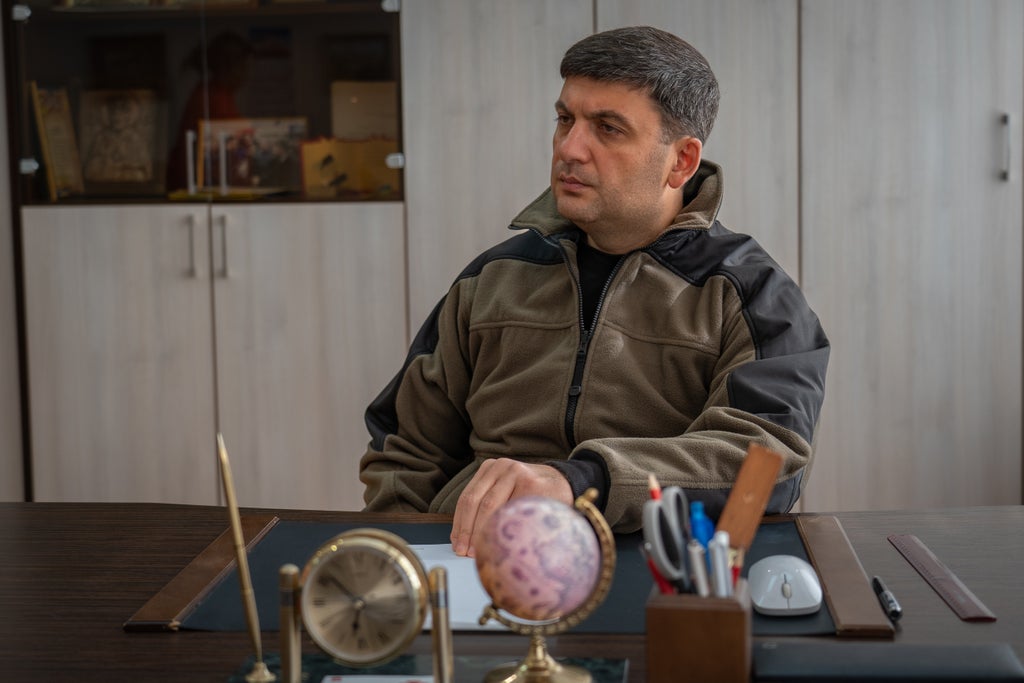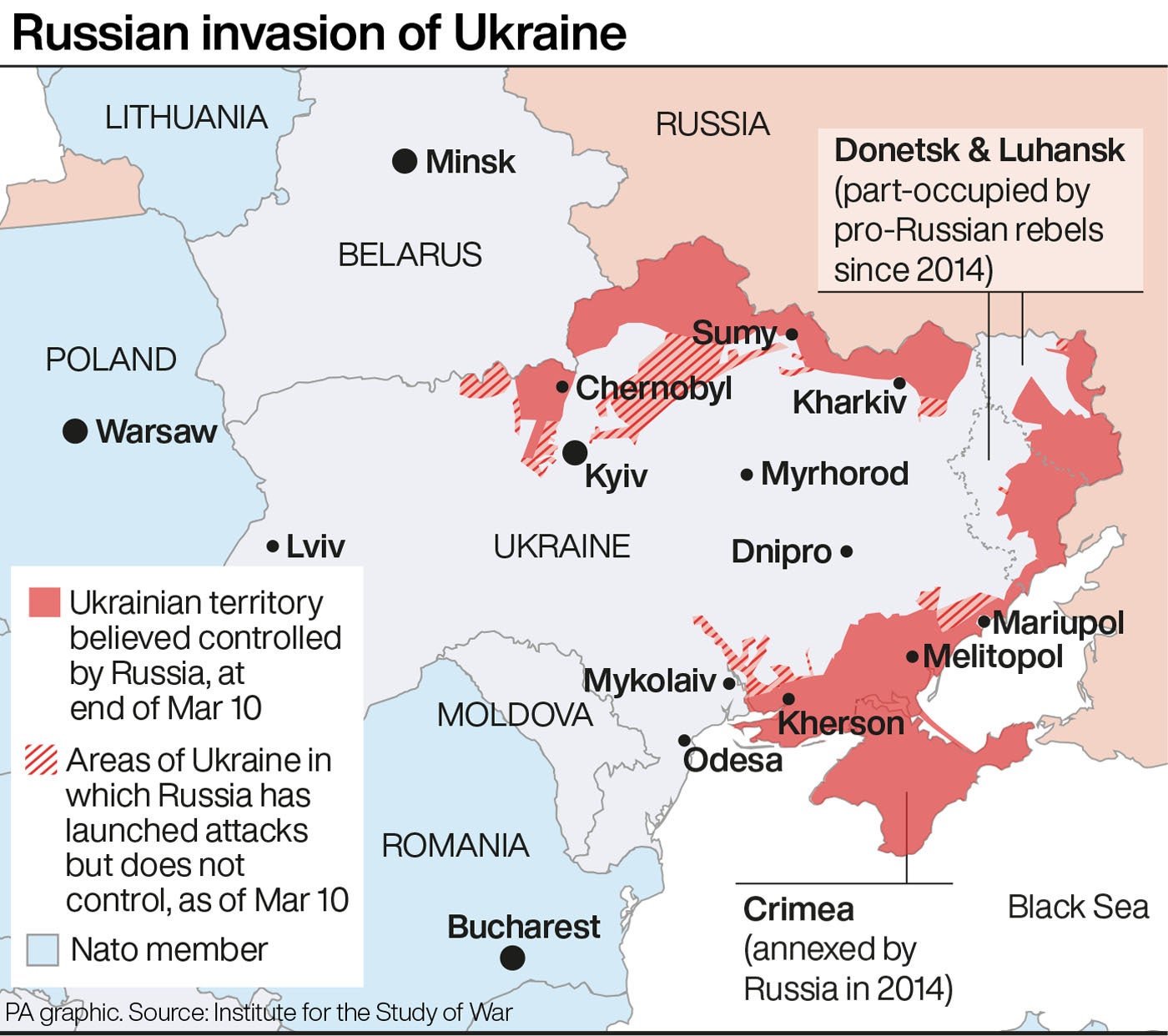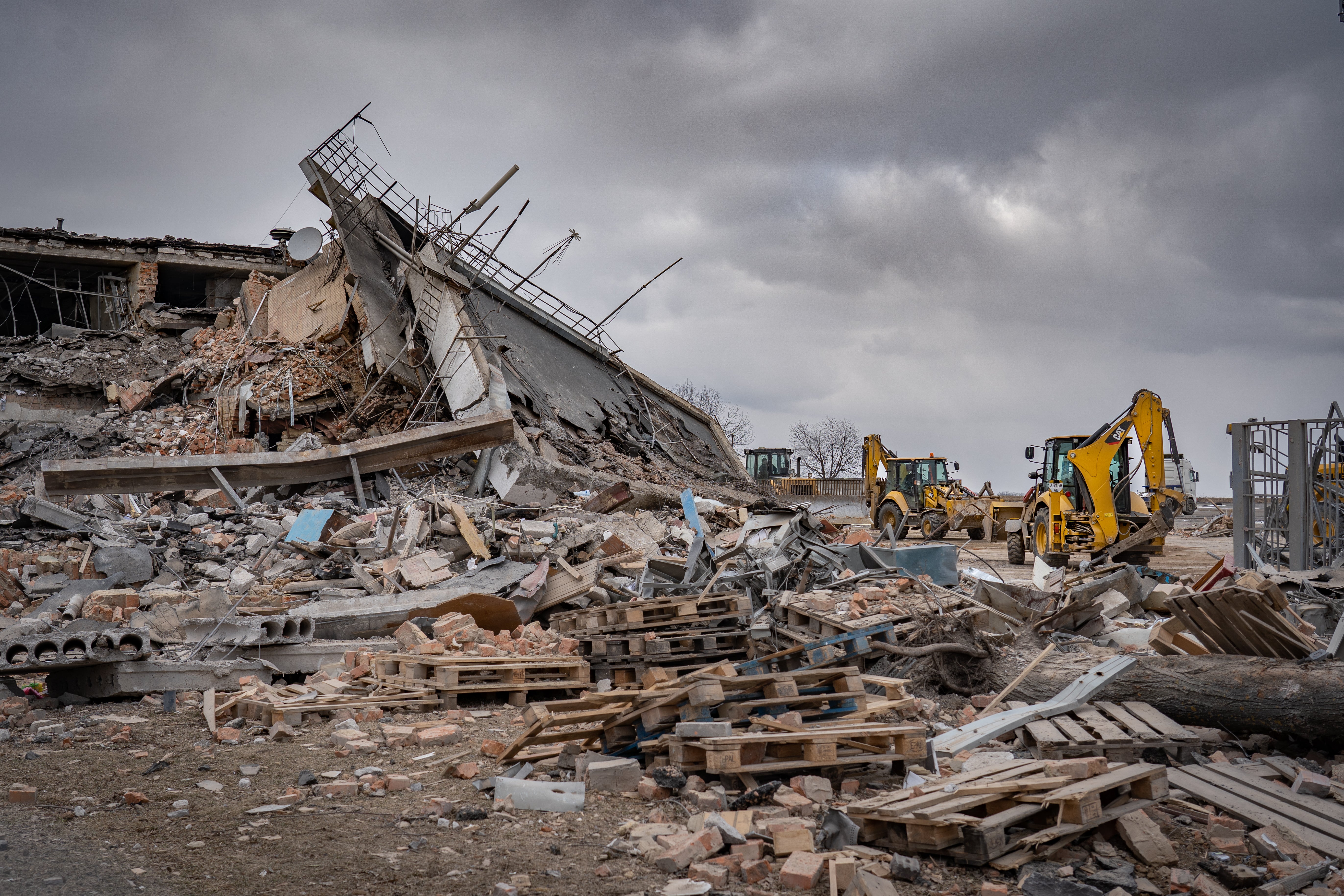
The Third World War has “already started” and countries must impose full sanctions on Russia and enforce a no-fly zone, Ukraine’s former prime minister has told The Independent.
Speaking from his hometown of Vinnytsia, central Ukraine, Volodymyr Groysman also claimed that his country was the “only defence” for Europe against Russia’s advance west.
Mr Groysman, who is Jewish, was in office between 2016 and 2019, and briefly served under Volodymyr Zelensky, the country’s first Jewish president.
The former premier, who lost several members of his family in the Holocaust, compared the Russian president, Vladimir Putin, to Adolf Hitler, slamming Putin’s claim he had come to “de-nazify” Ukraine. He said that if Ukraine doesn’t stop Putin’s advance, the Baltics states and Poland will be next.
Western leaders including Joe Biden and Boris Johnson have cautioned against direct western troop involvement or a no-fly zone in Ukraine, arguing it would be deemed a direct conflict with Russia and could provoke a “world war”.

Mr Groysman said this was a moot point as the Third World War had already started.
“This has already been started by Putin and right now there is only Ukraine in his way [stopping him from] marching east to west,” Mr Groysman said from his office in Vinnytsia, whose international airport was destroyed by Russian strikes last week.
“Thanks to Ukrainian soldiers he is being defeated for now. But Putin hates all democratic countries; his aim is to diminish us all. He has started moving from east to west. Ukraine just happens to be the first country on his way.”
Russian forces continued to relentlessly pound several of Ukraine’s major cities as the war entered its third week with little hope of a political solution to the growing crisis. High-level talks between the country’s foreign ministers in Turkey on Thursday came to nothing, dashing hopes of even a temporary humanitarian truce to allow hundreds of thousands of civilians trapped under shelling to get to safety.
Russia’s top diplomat, foreign minister Sergei Lavrov, said after the meeting that the discussion of a cessation of hostilities was not even on the table. “Here, no one was intending to agree a ceasefire," he said.
Moscow has instead issued demands for an end to the conflict, saying that Ukraine must cease military action, change its constitution to enshrine neutrality, acknowledge Crimea as Russian territory, and recognise the separatist republics of Donetsk and Luhansk as independent states. It has also called for the demilitarisation of the country.
Mr Groysman said that these conditions signalled the end of Ukraine as a sovereign state, adding that Ukraine has “no alternative but victory”.

Officially, more than 1,300 civilians in Ukraine have been killed or injured since Russia launched its ferocious invasion three weeks ago, according to the United Nations, which has admitted that the figure was probably a woeful underestimate.
The Ukrainians claim that the death toll is far higher. The major of Mariupol, a strategic coastal city that has been besieged and bombed by Russia for days, said that more than 1,300 people have been killed in that city alone and at least 3,000 more have been injured.
The UN meanwhile has warned the invasion has sparked the worst refugee crisis in Europe “this century”.
UNHCR officials told The Independent on Friday that 2.5 million people have now fled Ukraine, mostly through Poland, while an estimated 2 million people are displaced inside Ukraine.
In Vinnytsia, Mr Groysman, who indicated he would like to run for political office in the future, warned that Ukraine’s crisis was just the start of a larger onslaught.
“The disaster we have now is not just about Ukraine. This is a fight by Putin’s authoritarian regime with the democratic world.”
“I think British people remember quite well the bombardment of their cities during the Second World War.
“We must realise that if we don’t stop Putin now, the bombing of European cities is a serious reality. This is now no longer something that will never happen.”
“The threat of invasion of another European country is absolutely a reality.”
He said that while sanctions were welcomed they did not go far enough, and he specifically called for tougher energy sanctions from European countries such as Germany.
Berlin has so far rejected a complete ban on Russian gas and oil imports but is under pressure to take a moral stand rather than an economic one.
Europe gets about 40 per cent of its natural gas and 25 per cent of its oil from Russia, and Germany is particularly heavily reliant. More than half its gas and coal come from Russia as well as about a third of its oil.
German officials and experts have warned that without a transition period to alternative sources of power there could be mass blackouts across the country and soaring utility bills.
But pressure is mounting.
A group of climate activists, academics and scientists published an open letter to the German government on Wednesday that demanded a complete ban on Russian energy, arguing that “we are all financing this war”.
While EU leaders have apparently agreed to phase out buying Russian oil, gas and coal, according to a draft statement released as part of a two-day summit in France this week, no end date has been given. And this is a major problem according to Mr Groysman.

“As the Ukrainian authorities have said, there are not strong enough sanctions and we also need ammunition, weapons to empower our defence. “
“We need a total embargo on all energy resources, on everything that Russia sells today. We need comprehensive financial sanctions, the total – not partial – block of Swift for example.”
He said that countries will have to endure the consequences of inaction.
“When we talk about Germany – I do not understand their position. In our country we have a saying that ‘it is impossible to be half-pregnant’. And so the German government must be absolutely decisive, so that sanctions can be quick and destructive to Russia’s military economy.”
He added that if the Ukrainian sky is not closed in a no-fly zone and further sanctions are not implemented, civilians across Europe will pay the ultimate price.
“Do not bury your heads in the sand but look at these disasters realistically,” he concluded.
“Let us imagine what may happen if Putin gets closer to the borders of countries that are members of Nato, who will sleep safely in countries like Poland or Baltic countries?
“He must be stopped with a comprehensive economic and military response. Then we can set up peace and eliminate this threat to the democratic world.”





